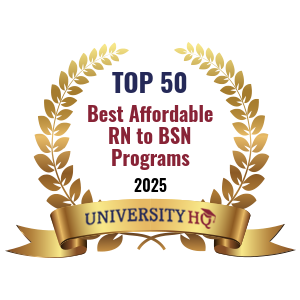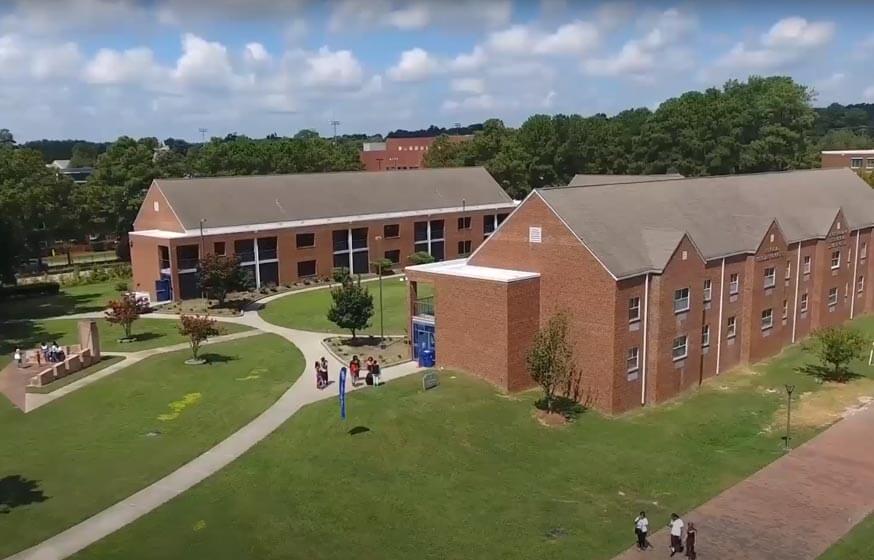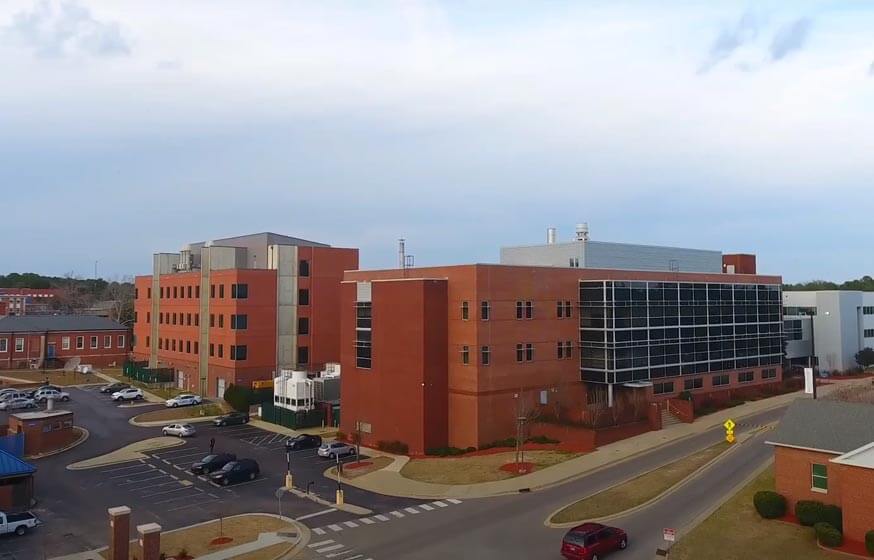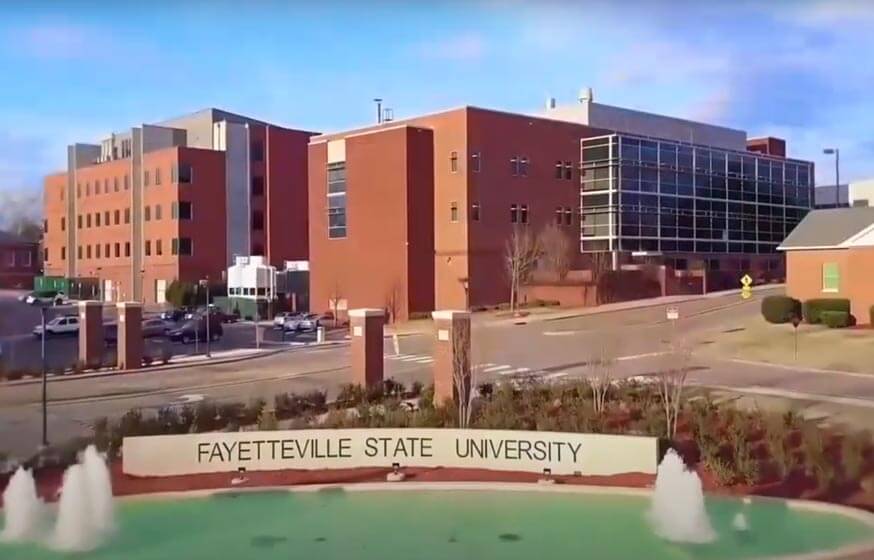University Headquarters (HQ) is an industry-leading, independent educational organization that provides independent college rankings using a proprietary formula to create first class unbiased rankings. The team at University HQ strives to provide accurate and trustworthy rankings that highlights the best programs.
Get Matched With Online Colleges
If you’re going to Fayetteville State University, you’ll be living in the heart of the South. You won’t be living very far from Fort Bragg, a well-known US Army base. You’re also close to the Cape Fear River, so you’ll be able to spend some time on the water if you’re inclined to do so. FSU is a public state university. And, being close to Fort Bragg, they offer the opportunity to join Army or Air Force ROTC, if you plan to enter the military as a junior officer. The university was founded in 1867, just two years after the end of the Civil War.
Search All Programs
Overview of Fayetteville State University (FSU)
The city itself is a midsize city, meaning you don’t have to worry about getting lost in a larger metropolis, but you also aren’t likely to get too much of a night life either. Still, you’ll be able to see things, take part in a variety of activities, and have options to help you relax when you aren’t studying.
FSU’s enrollment is over 6000, with around 5,100 students enrolled as undergraduates. This university offers services to student families, such as an on-campus day care facility for the children of its students. This will make it much easier for any students who are parents to complete their educations so they can strike out into new careers.
General Information
| School Type | Public |
|---|---|
| Campus Setting | City: Midsiz |
| Campus Housing | Yes |
| Student Faculty Ratio | 18:1 |
| Graduation Rate | 34% |
| Year Founded | 1867 |

Student Enrollment
Total Students6,551
5,644
907
Undergraduate Student
Male 1,750
Female 3,894
Graduate Student
Male 281
Female 626
Explore Map
Top Rankings For Fayetteville State University
FSU Acceptance Rate and Admissions
APPLICATIONS4,858
ACCEPTANCE3,352
Acceptance Rate69%
Enrollment 670
| Admissions | |
|---|---|
| Application Fee | $50 |
| High School GPA | Required |
| High School Rank | Required |
| High School Transcripts | Required |
| College Prep Courses | Required |
| Recommendations | Recommended |
| SAT/ACT | Required |
| TOEFL (Test of English as a Foreign Language) | Required |
| Application Deadline | June 30 |
| Common Application Accepted | No |
FSU Tuition Cost & Financial Aid
Going to school at FSU is pretty affordable, all things considered. Combined, every cost you or your parents may see on a bill from FSU will include tuition (in- or out-of-state), room and board, books, lab fees, supplies, and other various charges. The total averages around $17,521.
After financial aid is implemented, what remains is called the average net price. The average net price as of the 2018-2019 academic year was $5,587. Universities and colleges charge the same to all their students, but financial aid is provided based on family income. If your family’s annual earnings are up to $30,000, you pay around $4,330 and families earning more than $110,001 paid around $12,522. Those in between paid varying amounts, but you can expect student aid to cover a good bit of what you will owe overall.
Almost 100% of the freshmen in the student body was awarded financial aid in a recent academic year. They received an average of $10,592 in grants and scholarships. Seventy-eight percent received an average of $3,852 in institutional grants and scholarships.
| Average net price | 2018-2019 |
|---|---|
| Net Price | $5,587 |
| Average Total Aid | $10,592 |
| Students Receiving Financial Aid | 95% |
| Room & Board | $9,440 |
Sticker Price
- Tuition In-State - $5,274
- Tuition Out-of-State - $16,882
- Books and Supplies - $420
- Room & Board - $9,440
- Other - $2,387
Academics
Your classes may be more difficult than you had anticipated—at times, you may wonder if you should stay, go home or just transfer out to a different school offering easier classes. If you do decide to stay, you’ll be included on an important statistic all universities keep. This is the retention rate, which measures the percentage of first-time students who return for their second year of college. For FSU, that rate is 74%, which lets you know that the majority of students thought it was worth their time to not only attend FSU, but stay for the long haul.
The 4-year graduation rate is 16% and the 6-year rate is 34%, which is quite a bit below the national average. This may be, in part, due to the much higher number of graduate students vs undergraduate. Most of the students at this institution are working full time while taking courses, which can lengthen the time it takes to graduate and increase the chances of life interrupting the process. The student-to-faculty ratio is 18 to 1, meaning an average of 18 students to one professor or instructor, so you shouldn’t have too much trouble getting in touch with your professors, though you might need to schedule office time with them or send an email rather than catching them after class.
Something may happen that leads to you not being able to go to one class or more means you’ll have to find a different way of attending that class. At FSU, evening classes are available, as is distance (online) learning, so you’ll have some flexible options.
The five most popular degree programs at FSU are health professions and related programs; homeland security, law enforcement, firefighting and related protective services; psychology; business, management, marketing and related support services; and public administration and social service professions.
Retention
Rate
4 year
Graduation
Rate
6 year
Graduation
Rate
Student Population Total
Student Population 6,551
5,644
907
Most Popular Programs & Majors
(# of Diplomas Awarded by Subject)
| Health Professions and Related Programs | 209 Total Graduates / 21% |
|---|---|
| Registered Nursing/Registered Nurse | 183 Graduates |
| Health/Health Care Administration/Management | 26 Graduates |
| Homeland Security, Law Enforcement, Firefighting and Related Protective Services | 161 Total Graduates / 16% |
| Criminal Justice/Safety Studies | 100 Graduates |
| Fire Services Administration | 46 Graduates |
| Forensic Science and Technology | 15 Graduates |
| All Psychology Majors | 149 Total Graduates / 15% |
| Psychology, General | 149 Graduates |
| All Business Majors | 134 Total Graduates / 13% |
| Business Administration and Management, General | 103 Graduates |
| Accounting | 20 Graduates |
| Management Information Systems, General | 7 Graduates |
| Finance, General | 4 Graduates |
| Public Administration and Social Service Professions | 65 Total Graduates / 6% |
| Social Work | 52 Graduates |
| Public Administration | 13 Graduates |
| All Other Diplomas | 29% |
Outcome & Salary
Let’s say you’ve finally graduated and you’re out in the world earning money, you may wonder how quickly you’ll benefit financially from your education. You might need to be patient because graduate’s average early-career salary is around $38,400. Their your mid-career salary, however, increases to $67,800.
The 4-year cost of education averages $22,348, which is an important number to know to figure out the average return on investment (ROI). Graduate’s 10-year salary earnings potential is $538,340 and their 20-year salary potential is $1,216,340. Once you have subtracted your cost of education, your 10-year projected ROI is $515,992 and your 20-year projected ROI is $1,193,992.
In comparison, a high school graduate who didn’t go to college earns a national average salary of $38,792. Their 10-year projected income is $387,920 and their 20-year is $775,840.
| Graduates Salary | |
|---|---|
| College Grads Early Career Salary | $38,400 |
| College Grads Average Salary | $53,834 |
| College Grads Mid Career Salary | $67,800 |
| Return on Investment (ROI) | |
|---|---|
| 10 Year Salary Earnings Potential | $538,340 |
| 20 Year Salary Earnings Potential | $1,216,340 |
| Cost of Education (Net Price) 4 Year | $22,348 |
| 10 Year Projected ROI | $515,992 |
| 20 Year Projected ROI | $1,193,992 |
| No College Education Salary Comparison | |
|---|---|
| National Average Salary | $38,792 |
| 10 Year Projected Income | $387,920 |
| 20 Year Projected Income | $775,840 |
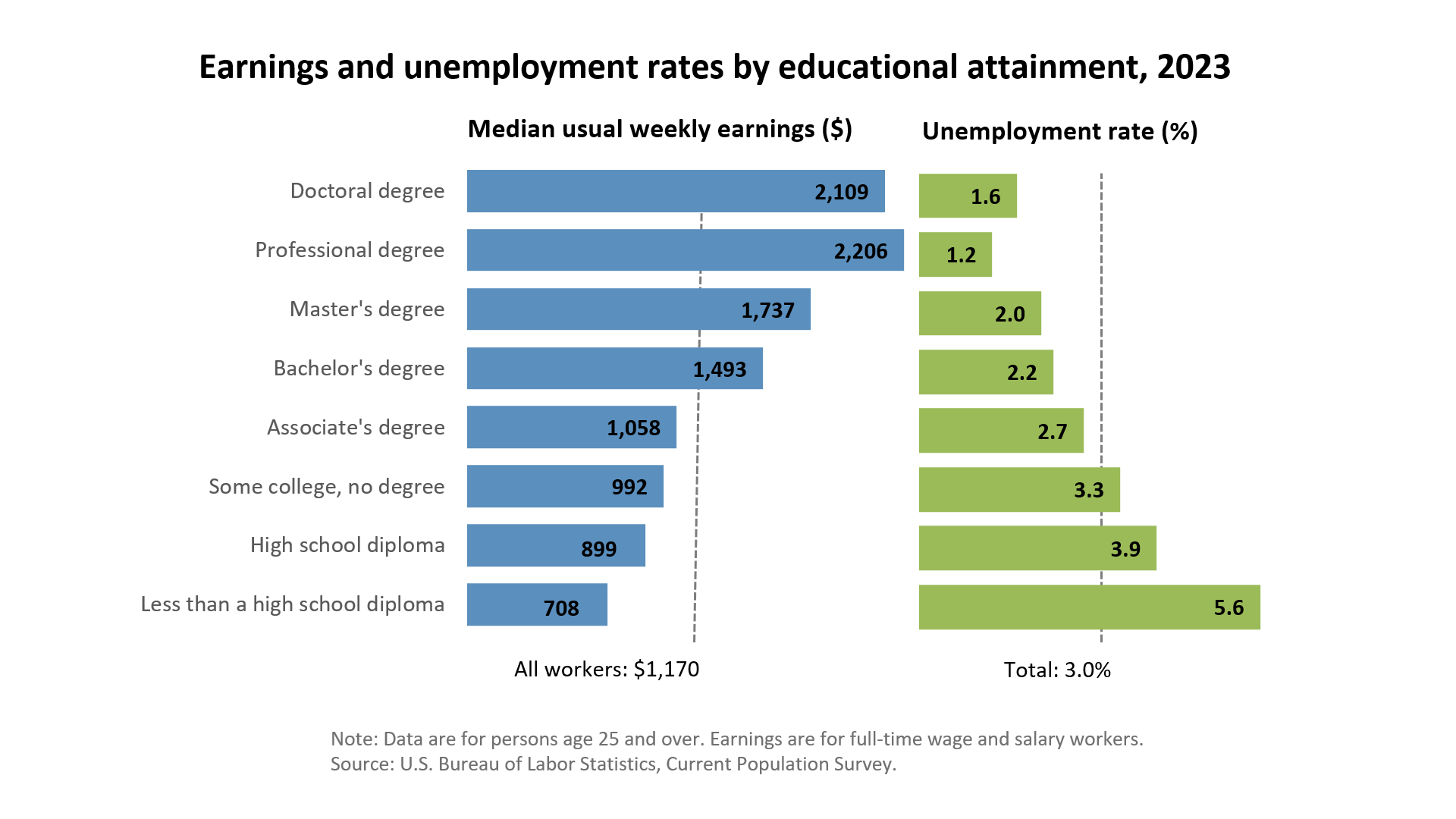
Related Top College Resources


































